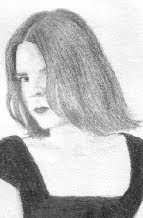 George Huxley was obsessed with the nearby Ryhope Wood. After his death, his younger son Steven returns from his post-war convalescence in France to find that his brother Christian has followed suit. Soon Steven learns what manner of place they have been living near: a forest in which space expands and time contracts, and legends spring to life in the form of mythagos. It in one of these that Chris is searching for, a red-haired warrior girl, a replica of the one he loved and lost. In his absence, just such a girl appears to Steven. But is she Chris’s mythago, or his? And if Chris finds her, will he care which?
George Huxley was obsessed with the nearby Ryhope Wood. After his death, his younger son Steven returns from his post-war convalescence in France to find that his brother Christian has followed suit. Soon Steven learns what manner of place they have been living near: a forest in which space expands and time contracts, and legends spring to life in the form of mythagos. It in one of these that Chris is searching for, a red-haired warrior girl, a replica of the one he loved and lost. In his absence, just such a girl appears to Steven. But is she Chris’s mythago, or his? And if Chris finds her, will he care which?
When Guiwenneth is taken from him, Steven enters the wood in pursuit. He joins forces with Harry Keeton, a pilot who encountered a similar wood after being shot down over France and has his own reasons for wanting to repeat the experience. Together they track Christian to the very heart of a forest that doesn’t want them there, haunted by the embodiments of myths past and present, friendly and hostile. Most malevolent is the mythago George long sought, the oldest myth of all: the Urscumug.
Once again, I found myself closing a book and wondering why I wasn’t blessed with an imagination like the author’s. I guess I should be glad that such imaginations exist at all, and that I get to read the results. This one reminded me of my high school Psych classes; the mythagos had a Jungian air about them. The forest seemed to have to dig them out of the collective unconscious by way of whoever spent enough time there to be used as a source (the trouble being, of course, that once the mythagos took on a life of their own it was hard to tell whose was whose). With the whole of history to choose from, the wood didn’t stop at just standard mythological figures, but could produce anything that had fallen into legend - castles, knights, cavaliers - or out of legend - fragments of stories that had been lost to time. The whole of British history, that is; few if any of the mythagos were unconnected to Britain. (So did the wood Harry found himself in produce distinctly French mythagos? How did these ‘ghost woods’ select culturally-specific mythagos to bring to life? And did Steven or Harry produce the mythagos they saw?)
Unfortunately, the book didn’t say. And it left me wanting more story, as well as more information. Turns out it’s the first in a series, the rest of which has gone straight on the Wanted list and will hopefully include more about Ryhope Wood. It was almost a character itself - certainly it seemed possessed of a mind of its own. It was plausible that it should have remained a mystery for so long, for it appeared normal from the outside and did its best to make sure no-one got too good a look at its inside. And who would tell a story so mad?
Rating: B+

















What a wonderful review! I read this book this past spring and liked it, but was left with the same need as you--to know more.
ReplyDelete